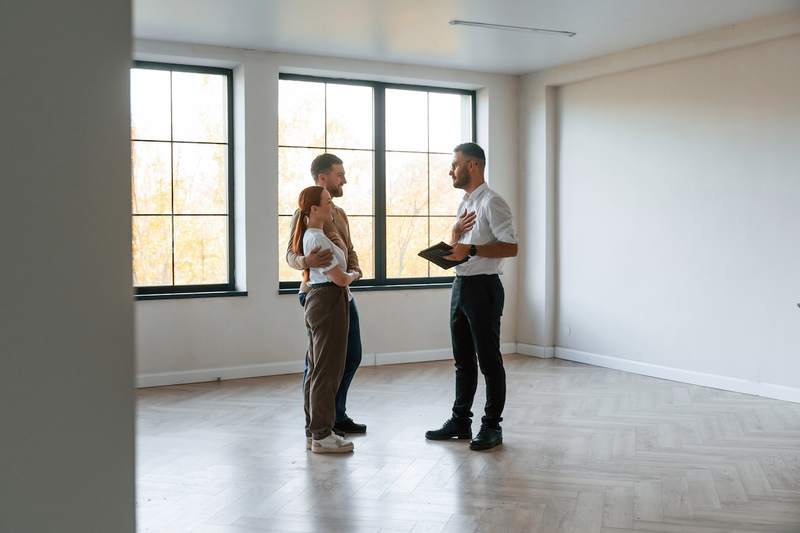A home appraisal should be an essential step for a homeowner looking to sell or refinance their home. A home appraisal is an objective estimate of what your property could sell for on the open market. To ensure that your home’s value is fairly estimated, it helps to know what can hold back or hurt your home appraisal. Addressing those factors upfront can help you get the most out of your home appraisal, and sell your home for the best possible price.
Key Takeaways:
- A home appraisal is an objective estimate of what your home is worth.
- Your home’s size, location, condition, aesthetics, and functionality all are factors that affect your appraisal.
- Take steps in advance to avoid a low appraisal, and consider an appeal or second opinion if you get a low appraisal.
What Is a Home Appraisal?
The home appraisal is an objective estimate of a property’s fair market value. To arrive at this figure, an independent and licensed third-party appraiser evaluates the property’s condition and features, then compares your property with similar homes that sold recently in the area.
If the appraisal is lower than the offer, the buyer may have a difficult time getting a mortgage. The buyer might need to ask the seller to negotiate the price downward, or back out of the deal — putting the seller back at square one.
24 Factors That Can Hurt Your Home Appraisal
Here are two dozen factors that affect home value and may cause your appraisal to come back lower than expected.
1. Your home’s location
Where your home is affects the appraisal in different ways. If it’s in a more exclusive part of town, such as a gated community, your home may appraise for more than if it was in a rural area or next to train tracks or a lot of traffic. If your home is in a rural area, the appraiser may find it more difficult to assign a value because there are fewer comparable homes nearby. Similarly, an appraisal may get tricky if the home is considered unique for its neighborhood.
2. The size of your plot
Larger lots tend to be worth more than smaller ones, so if your plot of land is smaller or larger than what’s common in the area, it could affect the appraisal.
3. Your home’s architectural style
There are many styles of home architecture, such as ranch, Cape Cod, colonial, and split level. Some homes have more ornate or complex architecture, so simpler homes in the same area could have lower appraisal values. Also, homes that deviate from the norm in the neighborhood — say a ranch home in a neighborhood of mostly colonial homes — may be difficult to appraise, and may come back with a lower estimated value.
4. The interior layout
Today, homebuyers prefer open home layouts over the smaller rooms common in homes built in the 1980s and earlier. Open layouts connect a home’s main living areas, and offer more natural light and airflow than homes that are divided up more. An older home lacking an open layout could hurt your appraisal.
Some homeowners may want to knock down some walls to open up the layout in the hopes of increasing their home’s value.
A home with an unusual layout also may appraise for less if it’s more difficult for the appraiser to find comparable properties.
5. The size of your home
Generally, larger homes are worth more, with price per square foot being a common metric for tracking home values. If you have a small home, you can expect a lower appraisal than if you live in a mansion.
6. The number of bedrooms and bathrooms
Adding bedrooms and bathrooms — even a half bath — to a home is one of the top ways to add value to a property. That means a home with fewer bathrooms or bedrooms may appraise for less.
7. The amount of storage space
Storage space is important. If a home lacks an adequate number of closets or other storage space, it will be less appealing to buyers, which will hurt your appraisal.
8. When your home was built
A home’s age can hurt an appraisal in a couple of different ways. While a historic home that’s been well maintained offers charm, an older home that’s not a good example of an architectural style or that hasn’t been well maintained can just look dated and old. Additionally, older homes often lack energy-efficient features and require more upkeep and expensive repairs. And sometimes they were made with construction materials that are known now to be unsafe, such as lead-based paint. Any of these factors can depress the appraisal of an older building.
9. Your home’s overall condition
Neatness counts. A home that looks clean and well maintained can be expected to appraise for a higher amount than one that seems worse for wear, is full of clutter, or is in not-so-great shape.
10. Deferred maintenance
Time causes inevitable wear and tear on a home. Failing to maintain the home, make repairs when needed, or refresh the home’s appearance from time to time can reduce your appraisal.
11. Structural problems
Problems with the foundation or roof are expensive to repair. If your home has structural defects, expect appraisers to reduce their appraisals.
12. Any dated or undesirable finishes
Home design trends change over time. Older styles may clash with modern preferences, which can hurt appraised values. For example, where dark wood finishes were popular in previous decades, today lighter wood finishes or brass are more popular. A home with dark wood could appraise for less than a similar one that’s more up to date.
13. Overly personalized renovations
One of the advantages of owning a home is that you can tailor it to your needs. But sometimes what’s perfect for you may not appeal to others. Say you love polka dots and paint your entire home that way. Few buyers would want to leave that style as is, which could dampen interest and reduce a home’s appraised value.
14. Older or unreliable appliances
Built-in appliances like ovens, refrigerators, and water heaters all are important parts of a home. Replacing them can cost hundreds or thousands of dollars. If the appraiser sees the home is outfitted with older appliances that aren’t energy-efficient or reliable, replacing them is an extra cost a buyer would have to take on. Newer or well-maintained appliances that don’t need upgrades can boost your appraised value.
15. An outdated electrical system
Older homes may have equally old electrical systems, which can pose a number of problems. While the appraiser typically doesn’t fully inspect the electrical system, they may notice if the home lacks enough outlets for modern needs, has an outdated panel box, or has grounded electrical outlets. Fixing such problems may be expensive, and can be expected to bring down the appraised value of your home.
16. Problems with the plumbing
Major plumbing problems also are expensive to repair. Again, the inspector likely won’t do a deep dive into your plumbing, but they will notice if you have an old water heater, low water pressure, corroded faucets, or slow drainage — all of which could hurt your appraisal.
17. An inefficient or expensive heating system
Heating is essential in colder climates. There are several common types of heating systems, including hot-water radiators, heating oil furnaces, and gas furnaces. An inefficient system or one that’s costlier to run likely will reduce a home’s appraised value.
18. The condition of the cooling system
Cooling is similarly important to heating systems, especially in warmer climates. Older systems may be more likely to need repairs, be less efficient, and cost more to operate. Air conditioning systems are expensive to install or replace, so a home without cooling or with a cooling system that needs repairs or an upgrade is likely to appraise for less than one that has a modern system already installed.
19. Your home’s curb appeal
This refers to how your home looks when a prospective buyer takes their first look at it. Improving your home’s curb appeal by removing clutter, tidying up the landscaping, and freshening up the home’s exterior can help increase its appraised value.
20. The yard and landscaping
A well-kept and appealing yard with attractive landscaping helps a house feel like home. Mowing your lawn, planting some flowers, and trimming shrubs and bushes can help the appraiser see your home in its most attractive light.
21. Your home’s exterior condition
A home with faded or chipping exterior paint, or weathered siding that needs replacement, won’t make a good first impression on the appraiser or potential buyers. A fresh coat of paint and fixing any defects in the exterior will improve your chances of a higher appraisal.
22. Failing to research comps
Determining the fair market value of your home involves researching the sales prices of comparable homes in the area. Doing your own research ahead of the appraisal can help you better understand the local market and set appropriate expectations for the appraisal results.
23. Unfavorable market conditions
Market conditions have a significant influence on your appraisal. If housing prices are increasing in your area, then your home is likely going to appraise at a higher value. But if you’re in a buyer’s market, your appraisal might come in lower than you expected.
24. A novice appraiser
Appraising homes is a skill, so appraisers tend to improve as they gain experience. If you get a novice appraiser, you might get a result that’s much higher or lower than you’d expect. An experienced appraiser will be better able to determine your home’s true value.
6 Tips for Avoiding a Low Appraisal
Here are six tips for preparing your home for the best possible appraisal.
1. Do your own research
Find out what homes in your area are selling for, and think about what type of landscaping and amenities are common. If your home’s condition and design are in line with the neighborhood, that’s a good thing. If your home seems like it’s in below-average condition, you’ll want to take steps to fix it up.
2. Make obvious repairs
If there are repairs you know you need to make, now’s the time to make them. Anything from a squeaky hinge to a leaky faucet could hurt your appraisal, so spend some time fixing obvious problems around your home. Prioritize issues that an appraiser likely will notice immediately.
3. Provide proof of upgrades
Show the appraiser proof of upgrades, such as receipts for new appliances or invoices from contractors that have done recent work on your property. Not only will it show the appraiser that you’ve put in some work and give them a dollar value for the improvements you’ve made, but it also will ensure they notice your upgrades when estimating your home’s value.
4. Improve your curb appeal
Spend some time raking leaves, mowing the lawn, and cleaning up your yard. If there are other things hurting your home’s curb appeal, now’s the time to fix them. Your appraiser will see your home for a relatively short time, so you want it seen in its best light.
5. Clean your home
Cleaning and tidying your home is a simple way to make it feel brighter and more inviting both for the appraiser and potential buyers.
6. Work with a real estate agent
Real estate agents and Realtors can help you get the most value out of your home. They can help you stage your home, and offer advice for boosting its appraised value.
5 Steps To Take If You Get a Low Appraisal
Despite your best efforts, you still could end up with a lower appraisal than expected. Regardless of the reason, there are strategies you can try to turn a low appraisal around.
1. Show proof of renovations
Recent renovations or upgrades may not always be obvious to an appraiser. It can help to offer receipts or other documentation that prove you’ve invested in upgrades and improvements to your home that should increase its appeal to buyers.
2. Produce any purchase offers you’ve received
Another document that can help boost the appraised value of your home is a list of offers. If you’ve already received offers for the home, show them to the appraiser to let them know your property is in demand.
3. Take the home off the market to make improvements
If you’re in no rush to sell, you could take your home off the market and renovate it to increase its value. Once the appraisal is complete, you’ll have a better idea of what areas in your home to focus on for the next appraisal. Beneficial repairs and upgrades may include:
- Replacing old windows and doors to make the home more energy-efficient.
- Repairing damage to the roof and siding.
- Remodeling the kitchen and bathrooms using newer materials.
- Updating the plumbing and electrical systems.
- Replacing the heating, ventilation, and air conditioning system with newer, more energy-efficient technology.
- Updating major appliances.
- Knocking down walls for a more open layout.
Again, keep in mind that any changes affecting the safety or structural integrity of the home should be handled by professionals. It might cost more, but professional work helps ensure that the repairs or renovations will be done well, and will truly increase the value of the home.
4. Request a review
Appraisals are an inexact science, so the results can vary depending on the appraiser. You could request an appraisal review to make sure that the appraiser considered all relevant factors. To appeal an appraisal, you should contact the buyer’s lender and submit documentation regarding comparable properties, along with an explanation of why they’ve been valued higher.
5. Get a second opinion
You also could get a second appraisal, but you should be willing to pay for it because it’s unlikely the buyer will do so.
FAQ: What Can Hurt Your Home Appraisal?
Here are answers to common questions about what can harm your home appraisal.
Yes, the type of mortgage that the buyer is using affects what the appraiser looks for. Government-backed loans have different criteria for appraisals than conventional loans. For example, Federal Housing Administration loans require homes to be free of pests, have attic access, and include safety features such as handrails for stairs. Other government-backed loans, such as Veterans Affairs loans and U.S. Department of Agriculture loans, have their own guidelines.
The Fair Housing Act prohibits discrimination in housing due to race, color, religion, sex, national origin, disability, or family status. Despite this, there are cases where these factors end up influencing a home appraisal. Appraisal bias occurs when a property is undervalued because the owner has a protected characteristic.
If you believe that you’ve been discriminated against, you can get a second opinion from a different appraiser. You also can report the incident to the Department of Housing and Urban Development’s Office of Fair Housing and Equal Opportunity.
Some of the top renovations that improve home value include converting your heat source from natural gas to electricity, replacing your garage door, and upgrading your vinyl siding.
The Bottom Line on Factors That Can Hurt Your Home Appraisal
Appraisals are an important tool for buyers, sellers, and lenders, which is why getting an accurate one is important. If you’re selling your home, you should make sure that the property is in good condition if you want to get the highest possible appraisal. By being prepared for the process, you can put yourself in a better position to get an accurate and favorable appraisal.
T.J. Porter contributed to the reporting of this article.






